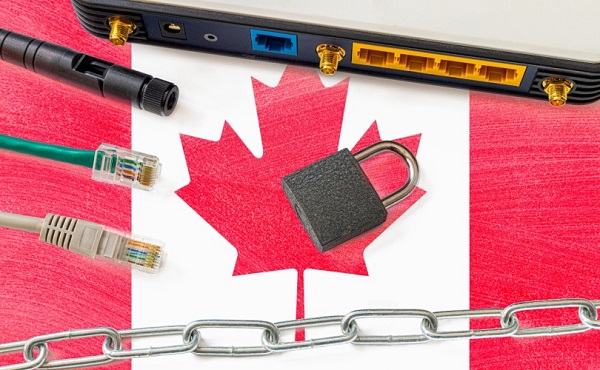Education
Pressure to enact smartphone restrictions spurs change among provinces

From the Fraser Institute
More than a decade ago, a Verizon commercial put a man holding his cellphone up to his ear in different locations across the United States, asking: “Can you hear me now?”
In Canada, it often seems like one end of the country doesn’t talk to the other, and policies look very different from west to east. But occasionally we’re reminded that we can learn from one.
For example, smartphone restrictions in K-12 classrooms. As the new school year draws near, this policy—in various forms, grounded firmly in research—is sweeping across Canada including British Columbia, Alberta, Ontario, Quebec, New Brunswick, Nova Scotia and Prince Edward Island.
Children and teenagers do not have a fully formed prefrontal cortex to help exercise self-control and limit their anxiety when smartphones are buzzing throughout the day. According to one study, the typical teenager receives 237 smartphone notifications per day—about 15 per hour. And according to the latest (2022) Programme for International Student Assessment report, 80 per cent of Canadian students feel anxious if their phones are not with them. Moreover, having a phone nearby, with notifications buzzing, is enough to cause students to lose focus on classroom tasks. One study found it took kids a full 20 minutes to regain focus after just one distraction.
So what’s the impact on student learning?
PISA research has found a clear connection between smartphone distraction and declining student achievement, particularly in math. Eighty per cent of Canadian students report being distracted by the devices of other students in math class—and students who were distracted by smartphones in math class scored 15 points lower on PISA math tests than those who were not distracted (PISA equates a 20-point drop in student test scores with one year of lost learning).
Of course, parents know this is a problem. According to a January 2024 poll, eight in 10 Canadian parents support banning smartphones in public schools.
Finally, while the research and polling support smartphone bans, the seven provinces that have enacted smartphone restrictions haven’t gone far enough. For example, Nova Scotia’s elementary school ban—which instructs elementary students to store their phones for the entire school day—is a great policy but doesn’t apply to junior high or high school students. Ontario’s failed 2019 restrictions provide a weaker example that didn’t work. And three provinces—Saskatchewan, Manitoba, and Newfoundland and Labrador—have not enacted any provincewide restrictions at all.
But thankfully, this upcoming school year, some provinces are learning from each another in an example of functioning federalism. Yes, we can hear you now—and in this case, children and teens will benefit.
Author:
Alberta
Province orders School Boards to gather data on class sizes and complexity by Nov 24

Better data, better outcomes for Alberta students |
To help schools address classroom complexity, Alberta’s government will begin collecting annual data on class size and composition.
Over the past three years, Alberta has welcomed more than 80,000 new students. With this unprecedented growth, classroom complexity and class sizes are among the biggest issues facing schools and teachers across the province.
To meet this challenge head on, Alberta’s government will work with school boards to gather yearly data on class sizes and composition. This information will be used to better understand staffing, student needs and classroom complexity. School boards will be required to submit data on Alberta classrooms by Nov. 24, and by January, this data will be made publicly available and will then be released annually.
Data collected on classroom complexity will help the province understand and address issues in schools, including class sizes, and support strategic investments in classrooms. Over the next three years, school boards will be provided with funding to hire 3,000 teachers and 1,500 new education assistants to support students with complex needs.
“We are ready to work with school boards and teachers to address classroom complexity and class sizes. We have heard them loud and clear and we are taking bold action to address these issues.”
Alberta’s government is establishing a Class Size and Complexity Task Force to begin work immediately on identifying solutions to the challenges facing Alberta classrooms. Alongside new annual data collection, the task force will ensure every student gets the attention and support they need to succeed. Details about the task force will be shared in the coming weeks.
“This data will provide essential insight into classroom realities, guiding evidence-based decisions and advocating for sustainable funding to address complexity, ensuring every student and educator in Alberta has the support to thrive.”
Quick facts
To inform decisions on addressing classroom complexity, data will be collected on total numbers of:
- all staff, per school, including roles
- substitute teachers
- district staff, listed by job title
- students, per classroom, per school
- severe, mild/moderate, and gifted/talented students, per classroom, per school
- English as an additional language (EAL) students, per classroom, per school
- refugee students, per classroom, per school
- First Nations, Métis and Inuit students, per classroom, per school
- Individualized Program Plans, per classroom, per school
- students waitlisted for assessment, per classroom, per school
- incidents of aggression and violence
- $55 million was provided in Budget 2025 to address classroom complexity.
- 8.6 billion is being invested to build and renovate more than 130 schools across the province.
- Budget 2025 is investing $1.6 billion in learning support funding to help meet students’ specialized learning needs.
- Budget 2025 is investing $1.1 billion to hire more than 4,000 teachers and educational staff.
Alberta
How one major media torqued its coverage – in the take no prisoners words of a former Alberta premier

(Editor’s note: I was going to write on the media’s handling of the Alberta government’s decision to order striking teachers back to work and invoke Section 33 of the Charter in doing so. But former Alberta premier Jason Kenney provided such a fulsome dissection of an absence of balance and its consequences in terms of public trust on X that I asked him if The Rewrite could publish it. He said yes and here it is – Peter Menzies.)
By Jason Kenney
This ”story” is an object lesson for why trust in legacy media has plummeted, and alt right media audiences have grown.
”story” is an object lesson for why trust in legacy media has plummeted, and alt right media audiences have grown.
Here CTV “digital news producer” @AngeMAmato (she/her) writes a story about “experts” calling the use of Sec. 33 “a threat to democracy.”
Who are the experts?
A left wing academic, and a left wing activist. The latter, Howard Sapers, is a former Liberal MLA (which the article does not mention) for a party that is so marginal, it has not elected an MLA in over a decade.
For good measure CTV goes on to quote two left wing union bosses, who of course are predictably outraged.
A more accurate headline would be “Four people on the left angry about use of Notwithstanding Clause.” Which is the opposite of news. It’s the ultimate “Dog Bites Man” non-story.
Did the CTV producer make any effort to post a balanced story by asking for comment from academics / lawyers / think tanks who support use of Sec. 33? Did she call the @CDNConstFound or the @MLInstitute’s Judicial Power Project? Did she attempt to reach any of these four scholars, who just published their views in a @nationalpost op-ed last week?
Did she have an editor who asked why her story lacked any attempt at balance?
And did anyone at CTV pause for a moment to ponder how tendentious it is to accuse a democratically elected legislature of acting “undemocratically” by invoking a power whose entire purpose is to ensure democratic accountability?
She provides some historical context about prior use of Sec. 33. Why does that context not include the fact that most democratically elected provincial governments (including Alberta under Premier Lougheed, and Saskatchewan under NDP Premier Blakeney) agreed to adopt the Charter *only if* it included the Notwithstanding Clause to allow democratically elected Legislatures to ensure a democratic check and balance against the abuse of undemocratic, unaccountable judicial power?
Why does she not mention that for the first 33 years of the Charter era, the Canadian Courts ruled that there was no constitutionally protected right to strike?
Why doesn’t she quote an expert pointing out that Allan Blakeney defended the Saskatchewan Legislature’s 1986 use of Sec. 33 to end a strike as “a legitimate use of the Clause?” Or refer to Peter Lougheed’s 1987 commitment to use Sec. 33 if the courts invented a right to strike?
Many thoughtful criticisms can be levelled against Section 33. Being undemocratic is not one of them.
So why do we see so much agitprop like this masquerading as news from so many legacy media outlets?
IMO, there are two possible answers:
1) They are blind to their own biases; and / or
2) People like @AngeMAmato believe that they have a moral imperative to be “progressive journalists” which trumps the boringly old fashioned professional imperative to be objective and balanced.
Whatever the reason, “journalists” like this have no one to blame but themselves for growing distrust of legacy media, and the consequent emergence of non traditional media platforms.
 |
|
Invite your friends and earn rewards
-

 Internet2 days ago
Internet2 days agoMusk launches Grokipedia to break Wikipedia’s information monopoly
-

 Business2 days ago
Business2 days agoBill Gates walks away from the climate cult
-

 Alberta24 hours ago
Alberta24 hours agoNobel Prize nods to Alberta innovation in carbon capture
-

 Health1 day ago
Health1 day agoLeslyn Lewis urges Canadians to fight WHO pandemic treaty before it’s legally binding
-

 Business1 day ago
Business1 day agoFord’s Liquor War Trades Economic Freedom For Political Theatre
-

 Banks1 day ago
Banks1 day agoBank of Canada Cuts Rates to 2.25%, Warns of Structural Economic Damage
-

 Censorship Industrial Complex1 day ago
Censorship Industrial Complex1 day agoPro-freedom group to expose dangers of Liberal ‘hate crime’ bill before parliamentary committee
-

 Business13 hours ago
Business13 hours agoCanada’s attack on religious charities makes no fiscal sense











